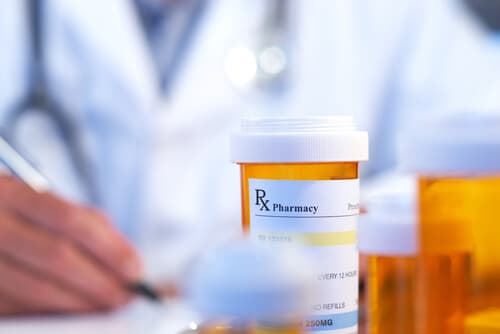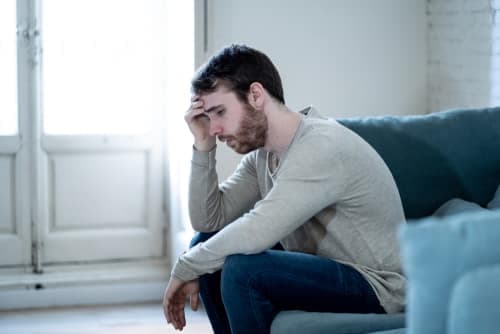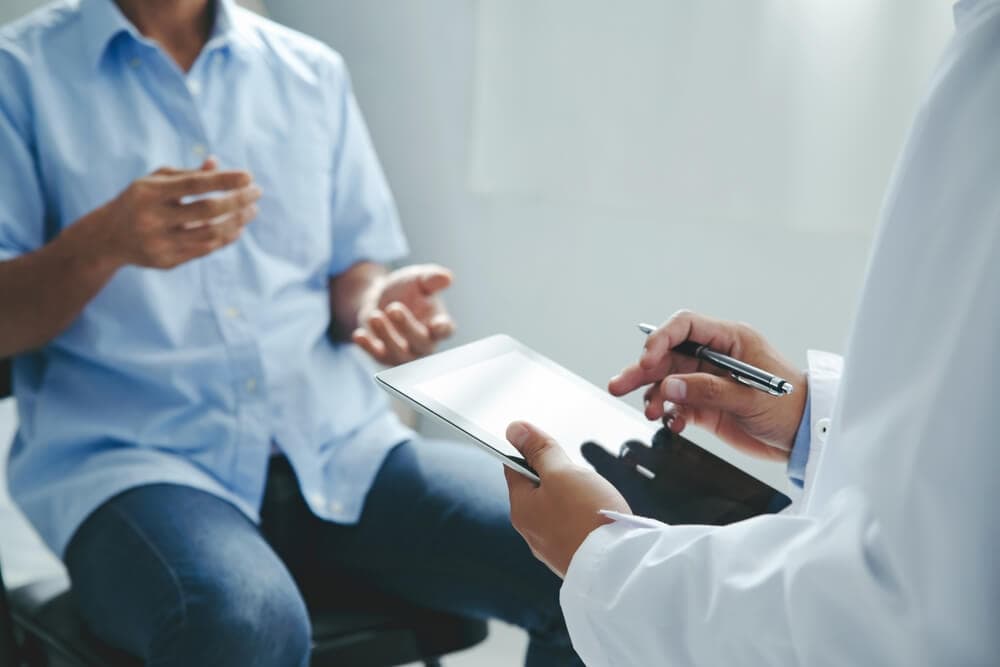Opioid Use Disorder
About Opioid Misuse
Treatment Programs
What Are Prescription Opioids?
Prescription opioids are commonly prescribed by doctors to treat moderate to severe pain. People may receive them to alleviate pain caused by cancer, injury, or surgery.1
Even though there is a lack of evidence to support their long-term effectiveness for other uses, such as chronic pain caused by noncancer conditions like osteoarthritis, they are frequently prescribed for these conditions, despite the risks associated with opioids.1
Prescription opioids are often misused for their pleasurable effects; anyone who uses opioids has a risk of addiction.1,2

Side Effects of Opioids
Even when taken as directed by your doctor, you can experience unpleasant side effects of opioids. Opioid side effects can include:1
- Sleepiness.
- Dizziness.
- Confusion.
- Dry mouth.
- Constipation.
- Nausea.
- Vomiting.

Risks and Effects of Long-Term Opioid Use
With long-term use, prescription opioids can lead to:2,7
- Tolerance, meaning that your body needs higher and/or more frequent doses to get the desired effects
- Dependence, meaning that your body has adapted to the presence of the drug and you need it to feel normal and to function.
- Increased pain sensitivity.
- An increased risk of falls and fractures (typically in older adults).
- Intestinal blockages, which can result in hospitalization and death.
- Respiratory effects like sleep-disordered breathing, sleep apnea, and hypoxemia (low oxygen levels in the blood). Opioids, particularly if you overdose, can also cause hypoxia, a condition that results when your brain does not receive enough oxygen. This can cause coma, permanent brain damage, and even death.
- Low testosterone levels, which can cause low sex drive, reduced energy, and diminished strength.
- An increased risk of cardiovascular events, such as heart attack and heart failure, when opioids are used over long periods of time.
- Mental health risks like depression.
- Suppressed immune system when used long-term.

Opioid Overdose
Who Is at Risk of an Opioid Overdose?
Anyone who takes prescription opioids is at risk of an unintentional opioid overdose, which could be fatal.8
You may have an increased risk of opioid overdose if you:9
- Use other substances (including alcohol) with opioids.
- Take high doses of opioids.
- Take more of the drug than you were initially prescribed.
- Take illegal opioids like heroin or fentanyl.
- Are older than 65.
- Have other medical conditions, such as sleep apnea or kidney or liver issues.
Signs and Symptoms of an Opioid Overdose
An opioid overdose can cause signs and symptoms such as:9
- Small or pinpoint pupils.
- Losing or complete loss of consciousness.
- Slow, shallow, erratic, or completely stopped breathing.
- Making choking or gurgling sounds.
- Vomiting.
- A limp body.
- Unresponsiveness or awake, but unable to talk/respond.
- Pale, blue, or cold skin.
- Slow, erratic, or absent pulse (heartbeat).
Never leave a person who you think has overdosed. Call 911 right away and administer naloxone if available. While waiting for emergency services, lay the person on their side to help prevent choking, and do your best to make sure they stay awake and keep breathing.9
Opioid Misuse and Addiction
Misusing prescription medication means that you use a drug in a way that it’s not intended.2 This can mean:2
- Continuing to take a medication when you no longer need it for medical purposes.
- Taking someone else’s prescription (even if you have a legitimate problem that makes you feel it’s necessary).
- Using the medication to get high.
People may also say that a drug is used for nonmedical purposes when they refer to prescription drug misuse.10

Opioid Withdrawal Symptoms
Opioid withdrawal symptoms may develop after a person stops or abruptly reduces their use of opioids following heavy or prolonged opioid use.11 Symptoms of opioid withdrawal may include:11
- Muscle aches.
- Nausea or vomiting.
- Dysphoric mood (intense feelings of depression).
- Diarrhea.
- Fever.
- Yawning.
- Insomnia.
- Dilated pupils.
- Teary eyes.
- Sweating.
- Runny nose.

Treatment for Opioid Addiction
Recovery from opioid addiction is possible. Seeking opioid addiction treatment can help you or a loved one recover from opioid misuse or illicit opioid use.
Common therapies and treatments that may be used include medications and/or behavioral therapies.2,12,13

Opioid Addiction Treatment at River Oaks
River Oaks Treatment Center—a drug rehab near Tampa, FL—has many different options when it comes to opioid addiction treatment. Levels of addiction treatment offered include:
Call our admissions navigators at to learn more about us, our personalized treatment plans, and ways to pay for rehab.
River Oaks is in-network with several major insurance companies. We make it easy for you to quickly check your insurance coverage for rehab online.
